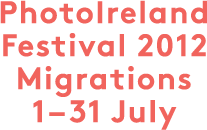n article illustration” src=”https://2012.photoireland.org/mb/wp-content/uploads/2012/05/immigration-articleLarge.jpg” alt=”Immigration article illustration- police officer interrogating a girl” width=”610″ height=”407″ />
Illustration by Anna Bhushan
New York Times article written by Jasmin Darznik.
“WHERE is your home?” the consular officer asked me.
I was 13 years old. My parents and I had left Iran eight years earlier, at the onset of the 1979 revolution. Since then, they had bought a house and a business — a small roadside motel in California. I had gone to school and learned to speak English. Then, on a summer trip to visit my mother’s Iranian relatives in Germany, I made the mistake of calling America my home.
The trouble started when my mother handed me the visa forms. My father had stayed behind to run the motel, and even though my mother had learned enough English to get by, at moments like this, when it was just the two of us, I was still the translator and all-purpose intermediary between “us” and “them.” I took the clipboard and began filling in the papers. My parents and I were in the United States legally, but since we’d traveled outside the country, my mother’s business visa would need to be renewed. It was standard procedure — we wouldn’t have encountered any difficulties if, under the line asking where our home was, I hadn’t written “America.”
“Are you sure about that?” the officer asked me, her pen pointed at my adolescent cursive. When I nodded, she retreated to a back room. A few minutes later, she returned to inform us that our applications had been denied. We would not be able to return to America, because we had expressed an intention to stay in the country permanently.
Looking back, the certainty of my response astonishes me. The Iranian revolution and the vagaries of immigration law had dispersed my relatives all over the world. By the time I faced that consular officer, I had cousins in Wisconsin, Stockholm, Istanbul and all points in between. During our time in Germany, my mother stayed up long into the night, reminiscing with my aunts and uncles about Iran and speculating about the country’s future — and the possibility of returning there someday. (…)
As it happens, I did return, nearly two years later. After several unsuccessful attempts at filing appeals for us on his own, my father was finally able to hire an attorney. Six months after that, my mother and I were free to come back, though with the explicit promise that we’d be staying only temporarily and only for business reasons.
Of course, so much had changed by the time I returned. The first — and in some ways most enduring — shock came at the airport in San Francisco, when I couldn’t recognize my father in the crowd. Two years of running the motel on his own and wrangling with immigration bureaucracy had left their mark. He’d gained a lot of weight, and wrinkles fanned out at the corners of his eyes. He was also much sadder than I remembered, but then I’d left as a child and returned much more grown up, and I could see him differently now.
America, though not wholly strange, was no longer familiar to me. Before, I’d willed myself into looking and sounding as if I belonged. Though I could still pass as American, I now had the sensation of perpetually looking at everything from the outside. Home schooling, paired with exile, had made me more shy and introspective, if also more independent. I was a real immigrant now.
Each year many thousands of children are brought to America by their parents. They come before they have any concept of citizenship, much less of belonging. Like me, they will draw their notions of “home” not only from what is familiar and desirable but also from what is permitted and denied them.
Today, I am a permanent resident. I can go and come easily, but at borders I am still reduced to the girl who once made the mistake of calling America her home. I check and recheck my passport for my green card. It’s always there, right where I put it, along with the uncertainty, the fear and, yes, the anger I’ll never quite outrun.
“Home.” At 13, I had that notion knocked out of me in ways that were useful, or mostly so. But the word still makes me uneasy, and even now, whenever I am given a choice, I leave the answer blank.
Full version of the article on New York Times Sunday Review web site.
Jasmin Darznik is a professor of English at Washington and Lee University and the author of “The Good Daughter: A Memoir of My Mother’s Hidden Life.”







